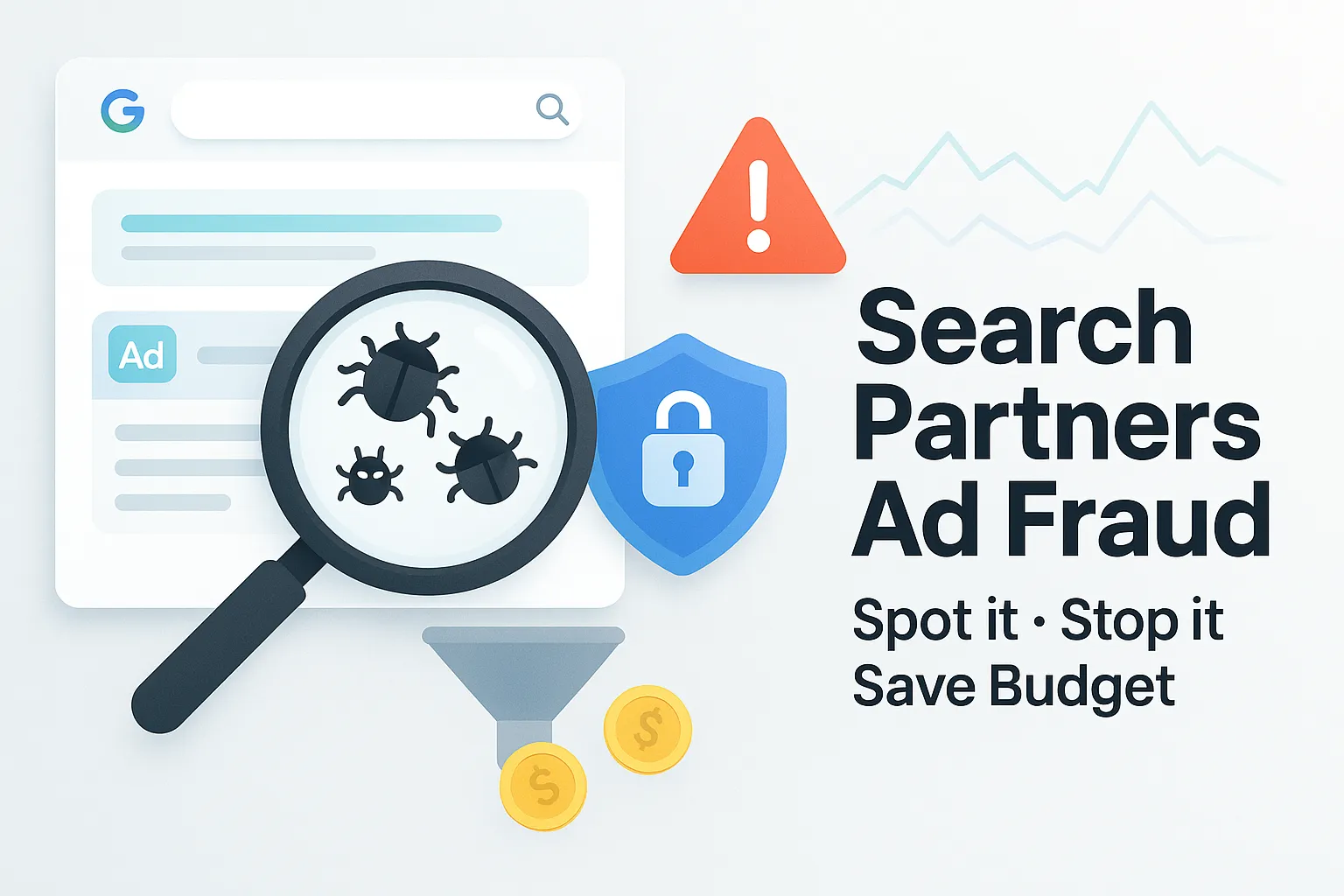Fraudulent Bot Networks and Their Effects on Affiliate Marketing

These sophisticated automated systems mimic human behavior on the internet, infiltrating affiliate programs and deceiving marketers into paying commissions for fake traffic and non-existent sales.
In this article, we will explore the alarming impact of fraudulent bot networks on affiliate marketing campaigns, delving into the financial losses, reputation damage, data distortion, and unfair competition they bring.
Moreover, we will examine practical countermeasures to help marketers safeguard their campaigns and restore integrity to the affiliate marketing ecosystem.
Understanding Fraudulent Bot Networks
Fraudulent bot networks are intricate systems of automated software programs specifically designed to imitate human behavior on the internet. These bots are programmed to perform a range of activities, such as clicking on ads, visiting websites, and even making fake purchases.
The primary goal of these networks is to deceive affiliate marketing platforms and advertisers into believing that genuine human interaction is driving traffic and generating sales. Consequently, merchants end up paying commissions for fraudulent actions that do not result in actual revenue.
Effects on Affiliate Marketing Campaigns
The infiltration of fraudulent bot networks into the affiliate marketing landscape has several detrimental effects, affecting all parties involved in the ecosystem.
1. Financial Losses
Affiliate marketers bear the brunt of fraudulent bot networks, as they are the ones who pay commissions based on the supposed traffic and sales generated. These financial losses can be substantial and have a direct impact on the profitability of marketers. In some cases, these losses can lead to compromised return on investment (ROI) and hinder the growth of their businesses.
2. Reputation Damage
Fraudulent bot networks can tarnish the reputation of merchants and brands involved in affiliate marketing. When affiliates unknowingly promote products to bots instead of real customers, it diminishes trust in the brand and negatively impacts their credibility. This loss of trust can have long-lasting effects on the merchant's reputation and can be challenging to regain.
3. Inaccurate Data
The presence of fraudulent bot networks skews data analytics, making it difficult for marketers to assess the actual effectiveness of their campaigns. Accurate data is crucial for making informed decisions, optimizing marketing strategies, and allocating resources effectively. When fraudulent activities distort data, marketers may make misguided decisions that can result in wasted efforts and missed growth opportunities.
4. Unfair Competition
Legitimate affiliates face unfair competition from fraudsters who utilize bot networks to gain an unfair advantage. These fraudulent actors can manipulate conversion rates, rankings, and other key metrics, making it harder for honest marketers to thrive in the affiliate marketing ecosystem. This unfair competition can create an uneven playing field and hinder the growth of legitimate businesses.
Countering Fraudulent Bot Networks for Affiliate Marketers
While completely eliminating fraudulent bot networks may be challenging, there are several measures that can be implemented to minimize their impact on affiliate marketing campaigns.
1. Robust Monitoring and Analysis
Affiliate marketers must invest in advanced monitoring and analytical tools to detect patterns and anomalies that may indicate bot activity. Real-time data analysis can help identify suspicious traffic sources, unusual click-through rates, and other indicators of fraudulent behavior. By staying vigilant and continuously monitoring campaign performance, marketers can take timely action to mitigate the impact of bot networks.
2. Enhanced Verification Processes
Implementing strict verification processes for affiliates can help filter out potential fraudsters. By thoroughly vetting affiliates before accepting them into a program, marketers can minimize the risk of fraudulent activities. This may include conducting background checks, verifying traffic sources, and implementing stringent approval processes.
3. Ad Fraud Prevention Tools
Employing ad fraud prevention tools and technologies is crucial in combating bot networks. These tools leverage sophisticated algorithms and machine learning to identify and block bot traffic, ensuring that only legitimate interactions contribute to campaign performance. Ad fraud prevention tools can effectively protect affiliate marketing campaigns from the harmful effects of fraudulent bot networks.
At Spider AF, we offer a powerful solution to tackle affiliate fraud head-on. Our advanced software is specifically designed to detect and block fraudulent activities in affiliate marketing campaigns. With our cutting-edge algorithms and machine learning capabilities, we can effectively identify and eliminate bot traffic, click fraud, and other deceptive practices that harm the integrity of the industry.
By monitoring data in real-time, we swiftly detect suspicious patterns and anomalies, allowing marketers to take immediate action to protect their campaigns. With Spider AF, affiliate marketers can regain control, minimize financial losses, and create a secure affiliate marketing ecosystem.
4. Collaboration and Industry Standards
Collaboration among affiliate marketers, networks, and merchants is essential for combating fraudulent bot networks effectively. By establishing industry-wide standards and sharing information on fraudulent activities, stakeholders can collectively work towards reducing their impact. Collaboration can lead to the development of best practices, the exchange of insights and experiences, and the creation of a united front against fraudulent bot networks.
Spider AF Protects Your Affiliate Campaigns
Fraudulent bot networks pose a significant threat to affiliate marketing campaigns, resulting in financial losses, reputation damage, data inaccuracies, and unfair competition. However, marketers can combat this menace by implementing proactive measures such as robust monitoring, enhanced verification processes, and leveraging tools like Spider AF to prevent ad fraud. Collaboration among industry stakeholders and the establishment of standards further strengthen the industry's ability to tackle this issue.
By staying vigilant, taking action against fraud, and promoting transparency, the affiliate marketing ecosystem can thrive and maintain its integrity. Try Spider AF free today.
Frequently Asked Questions about Bots in Affiliate Marketing
What are fraudulent bot networks and how do they impact an affiliate marketing business?
Fraudulent bot networks are complex systems that use automated software to mimic human online behavior. They harm an affiliate marketing business by generating fake traffic and sales, leading to unwarranted commission payments, financial losses, and potential damage to the business's reputation.
Can fraudulent bots affect the performance metrics of my affiliate marketing initiatives?
Yes, fraudulent bots can skew the data analytics of your affiliate marketing initiatives, leading to inaccurate measurements of campaign performance. This distorted data can mislead your marketing efforts and strategic decisions.
How can I protect my affiliate marketing business from fraudulent affiliate bot activities?
You can protect your affiliate marketing business by implementing robust monitoring and analysis, using enhanced verification processes for new affiliates, and employing ad fraud prevention tools equipped with artificial intelligence and machine learning algorithms.
What are some effective strategies to minimize the impact of bots on affiliate sales?
To minimize the impact of bots on affiliate sales, you can leverage ad fraud prevention tools, stay vigilant with real-time data monitoring, and conduct a thorough competitive analysis to understand and implement best practices for fraud detection.
What measures can I take to drive targeted traffic to my site instead of bot traffic?
To attract targeted traffic, focus on creating quality content, optimizing for search engines, engaging on social media platforms, and running targeted ad campaigns. Using SEO strategies and promoting your content on the right social media networks can also help attract your target audience.
How does Spider AF work to prevent affiliate marketing bot fraud?
Spider AF employs advanced machine learning algorithms to detect and block bot traffic in real-time, ensuring only legitimate interactions affect your campaign performance. It's designed to identify suspicious patterns that could indicate the presence of an affiliate marketing bot.
Is it necessary to collaborate with other companies to fight against fraudulent affiliate bots?
Yes, collaboration with other companies, networks, and merchants is key to combating affiliate bots effectively. Sharing information and establishing industry-wide standards helps create a united front against fraudulent activities.
Can Spider AF help save time in identifying fraudulent activities in my affiliate business?
Yes, Spider AF can save time by swiftly detecting suspicious activities using its real-time monitoring capabilities. This allows affiliate marketers to quickly respond to potential threats to their affiliate business.
Why is it increasingly important to ensure the integrity of affiliate program campaigns?
It's increasingly important because the success of an affiliate program is based on trust and transparency. Protecting against fraud ensures the longevity and profitability of your affiliate marketing initiatives and maintains your brand's credibility.
How can I generate free traffic that converts into real sales for my affiliate offer?
To generate free traffic that leads to real sales for your affiliate offer, focus on SEO to improve your search engine rankings, engage with your audience on social media platforms, and utilize content marketing to provide value to your potential customers.



















